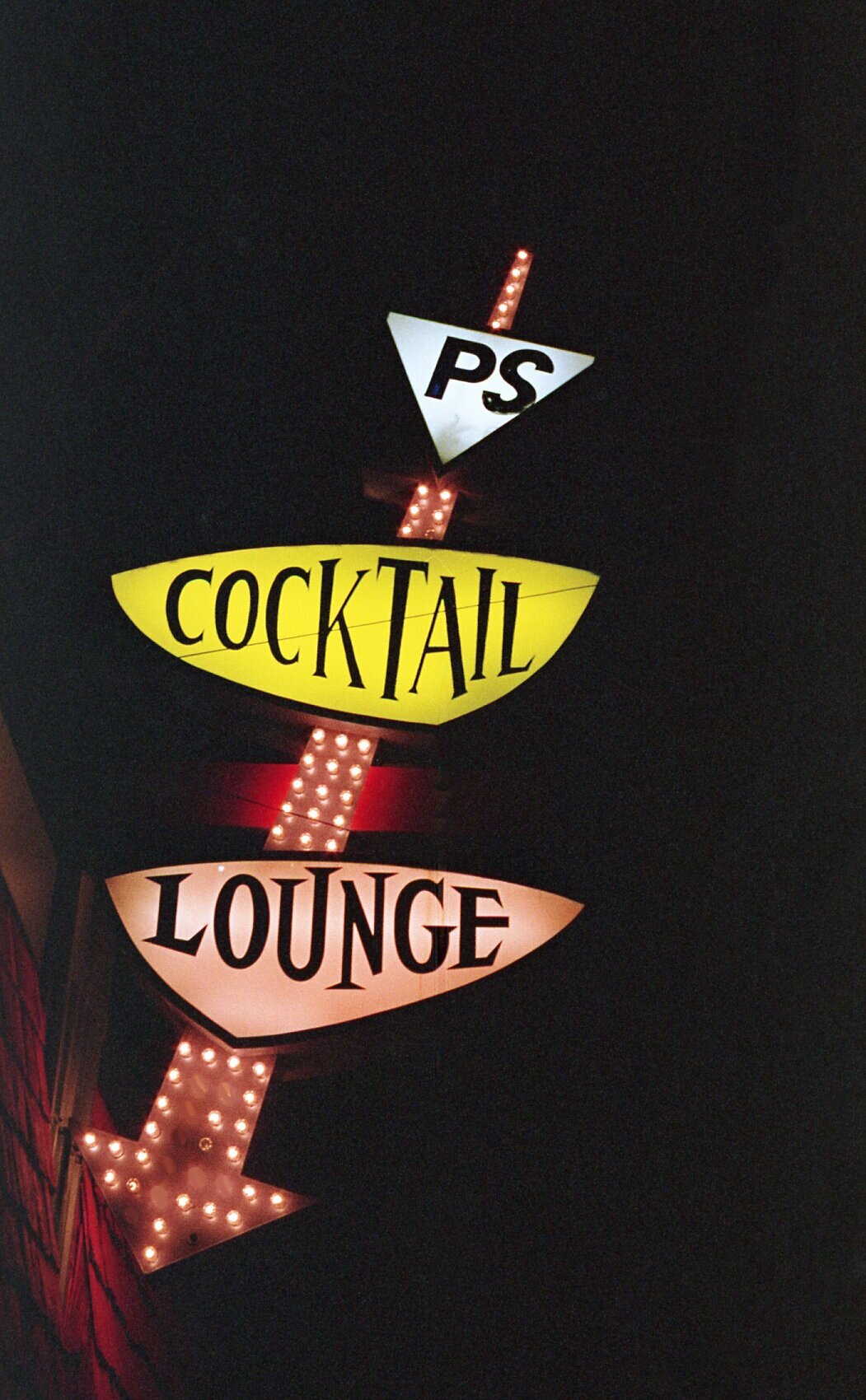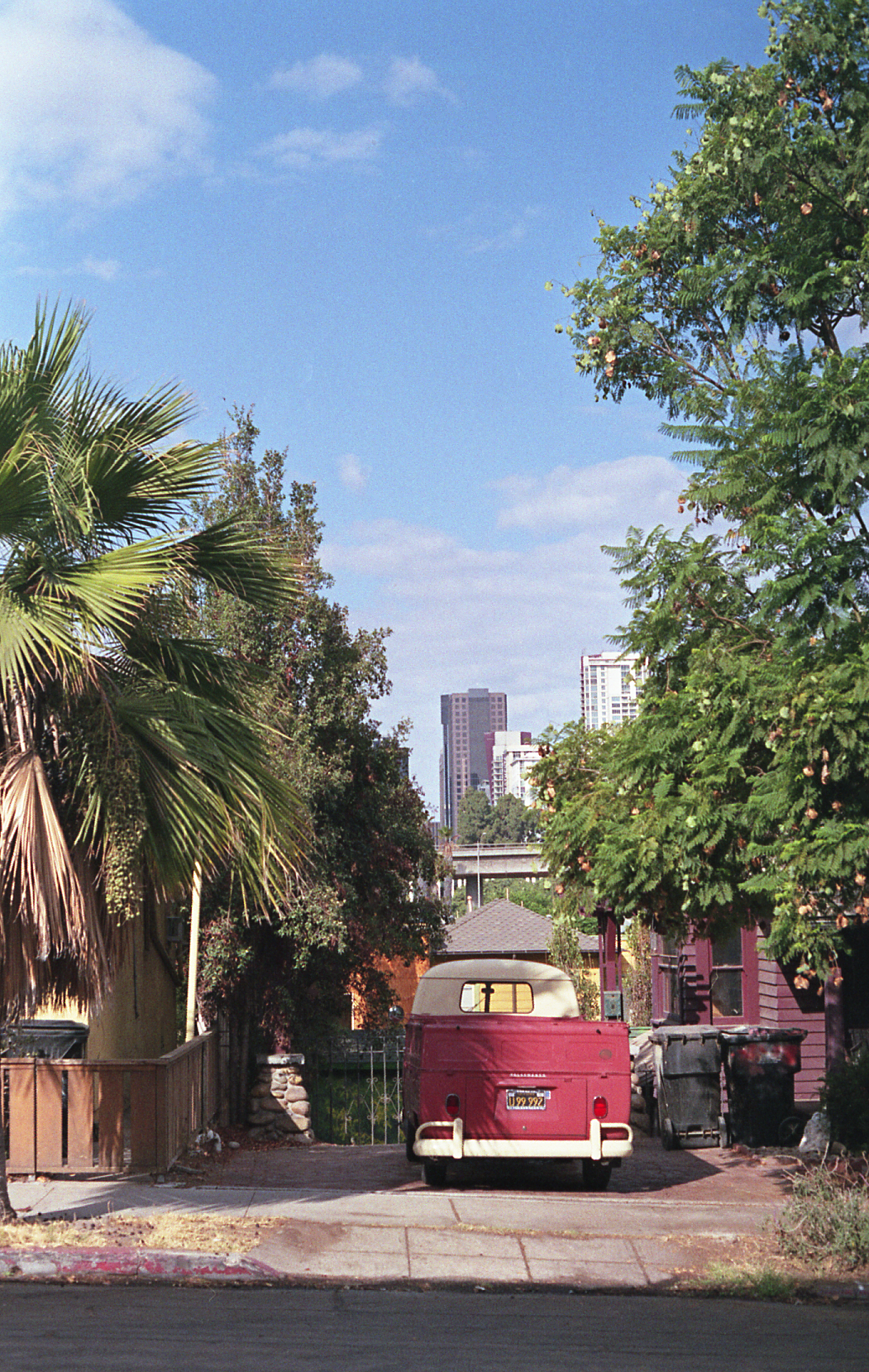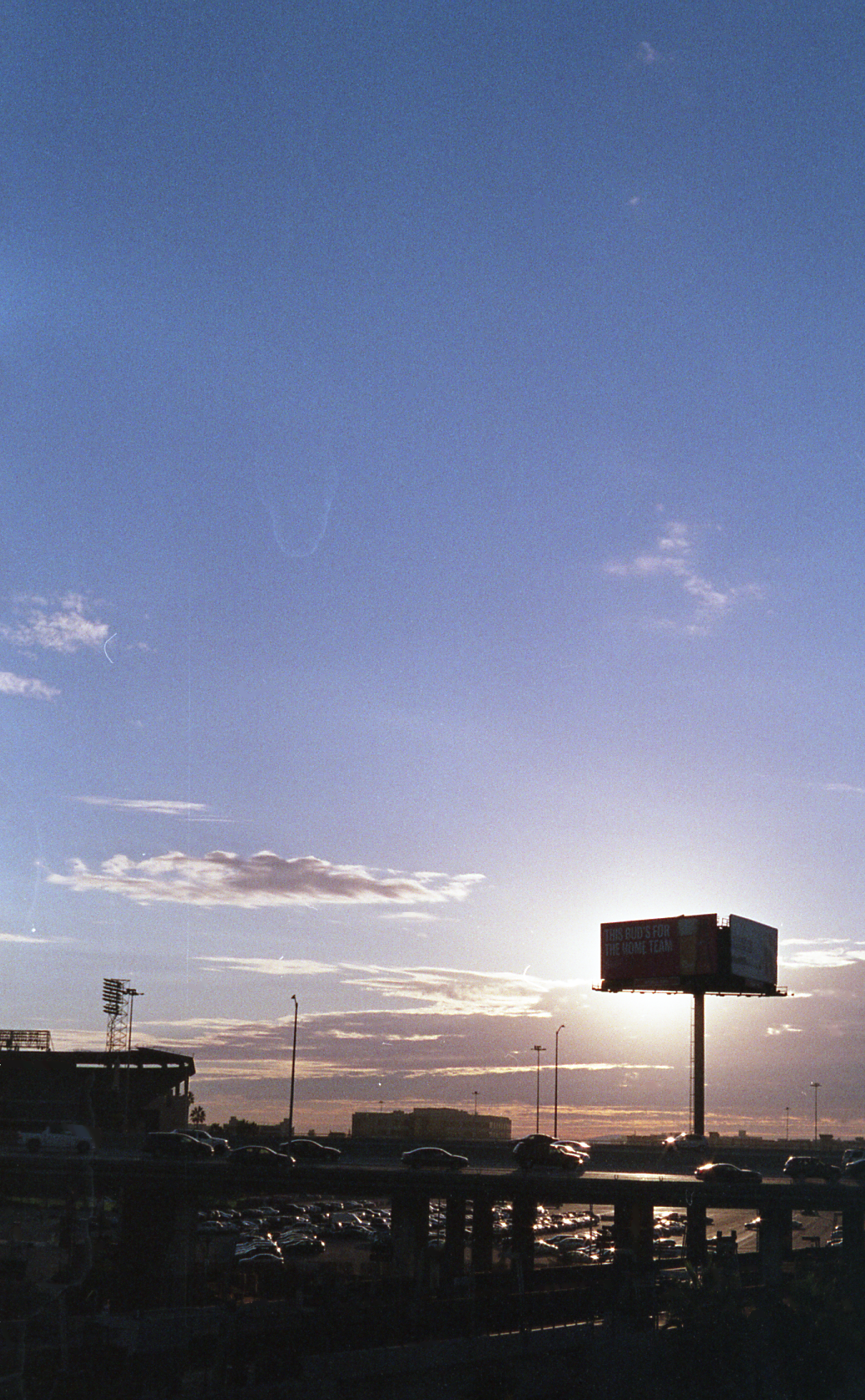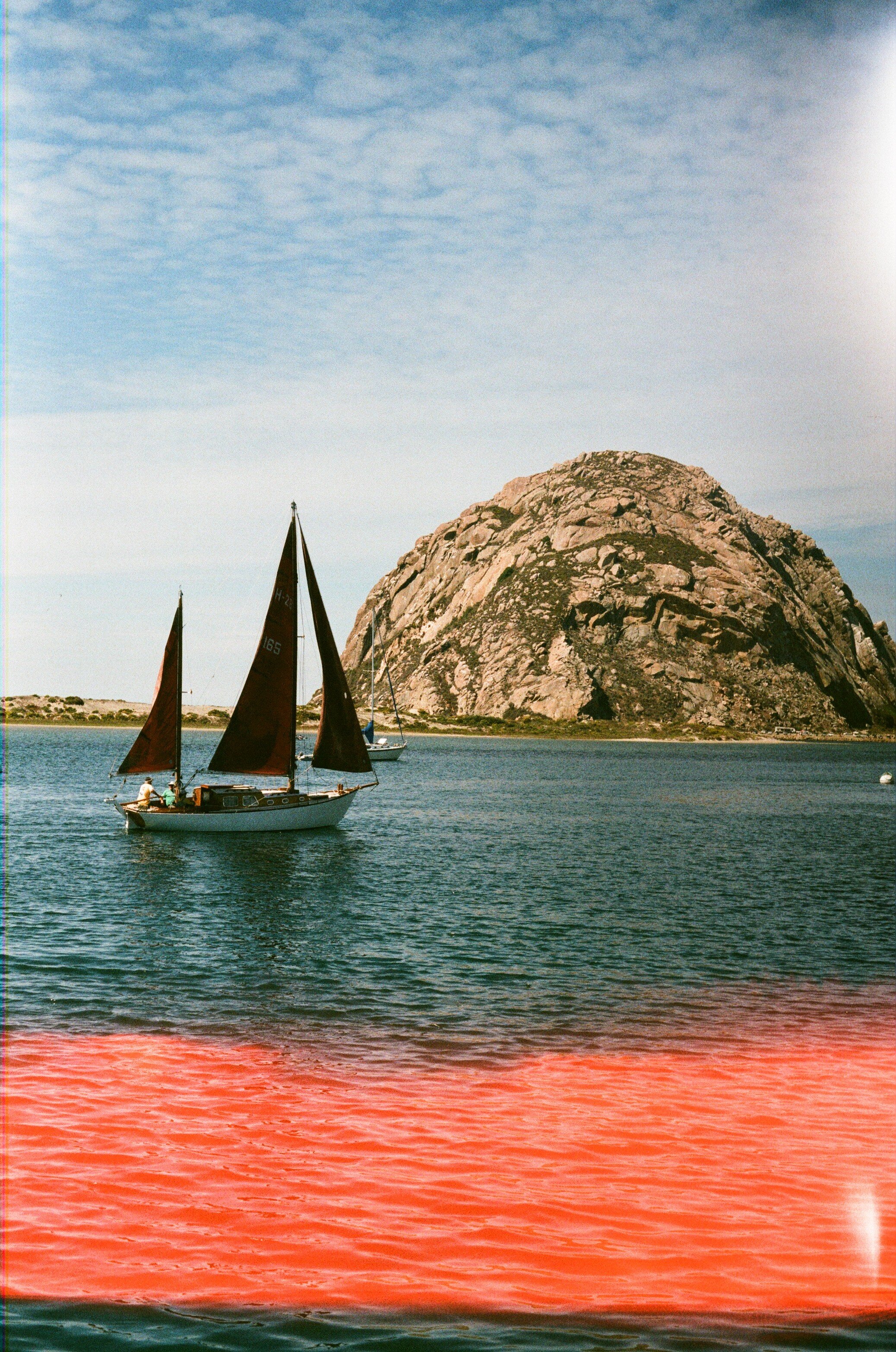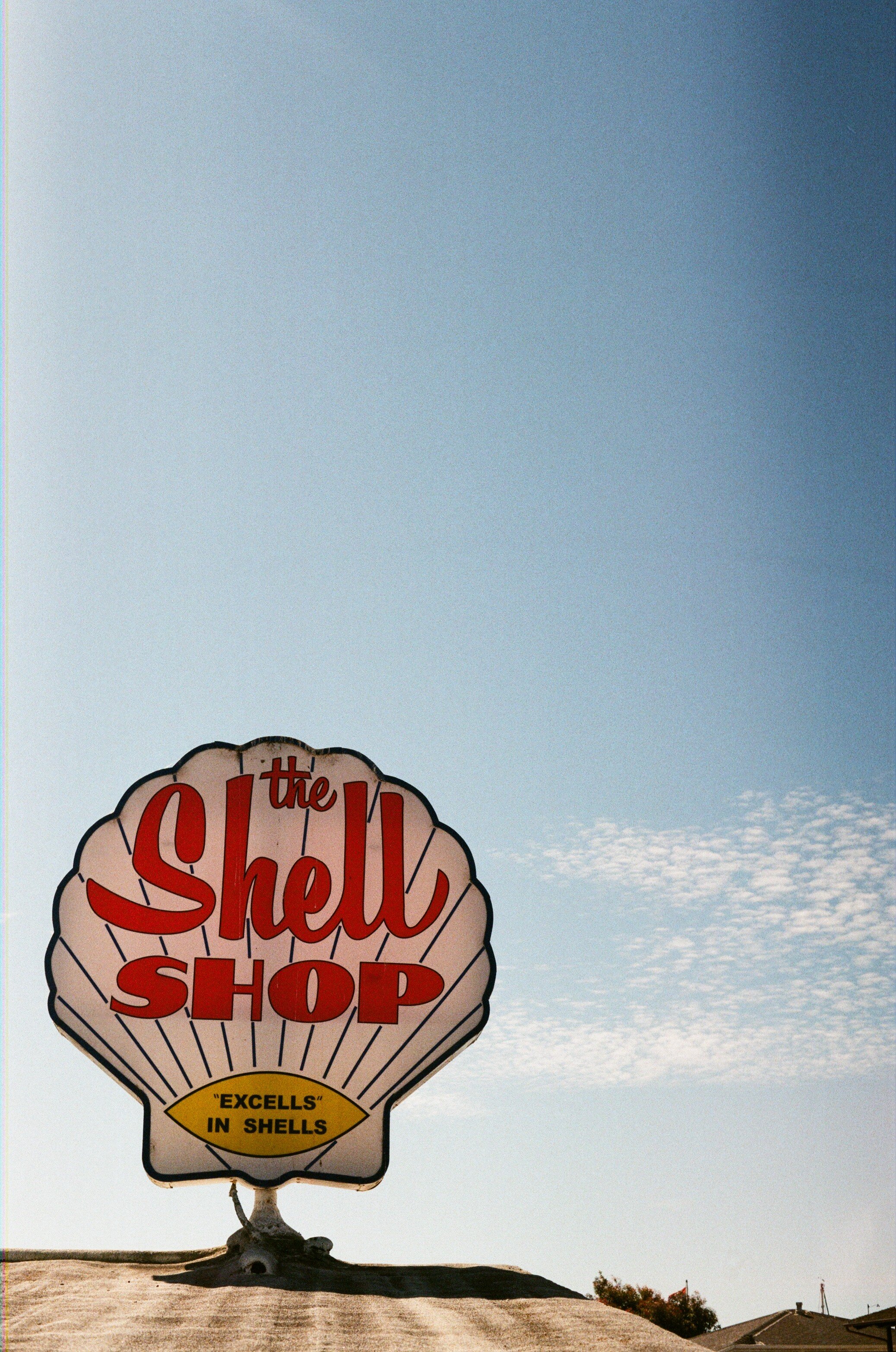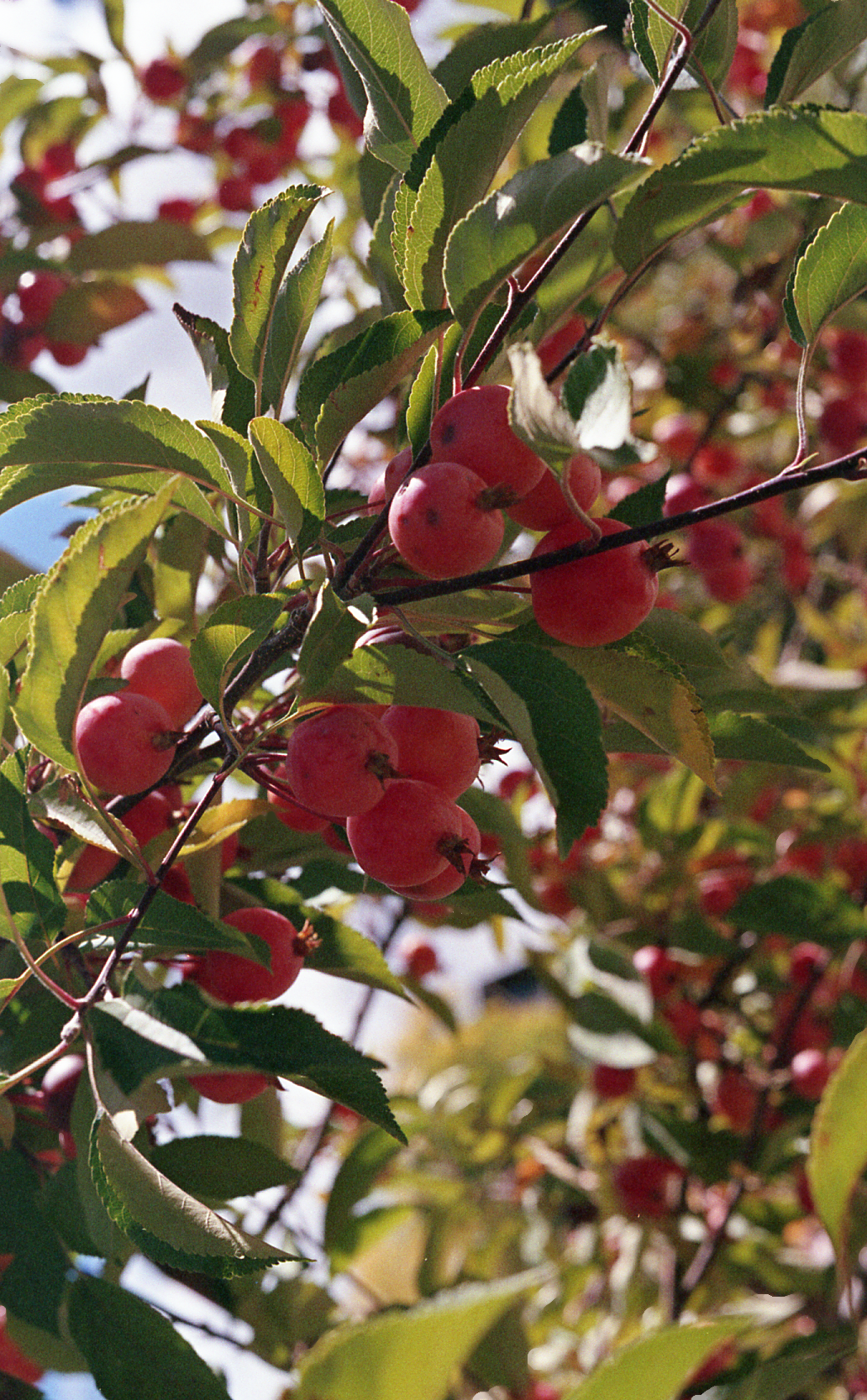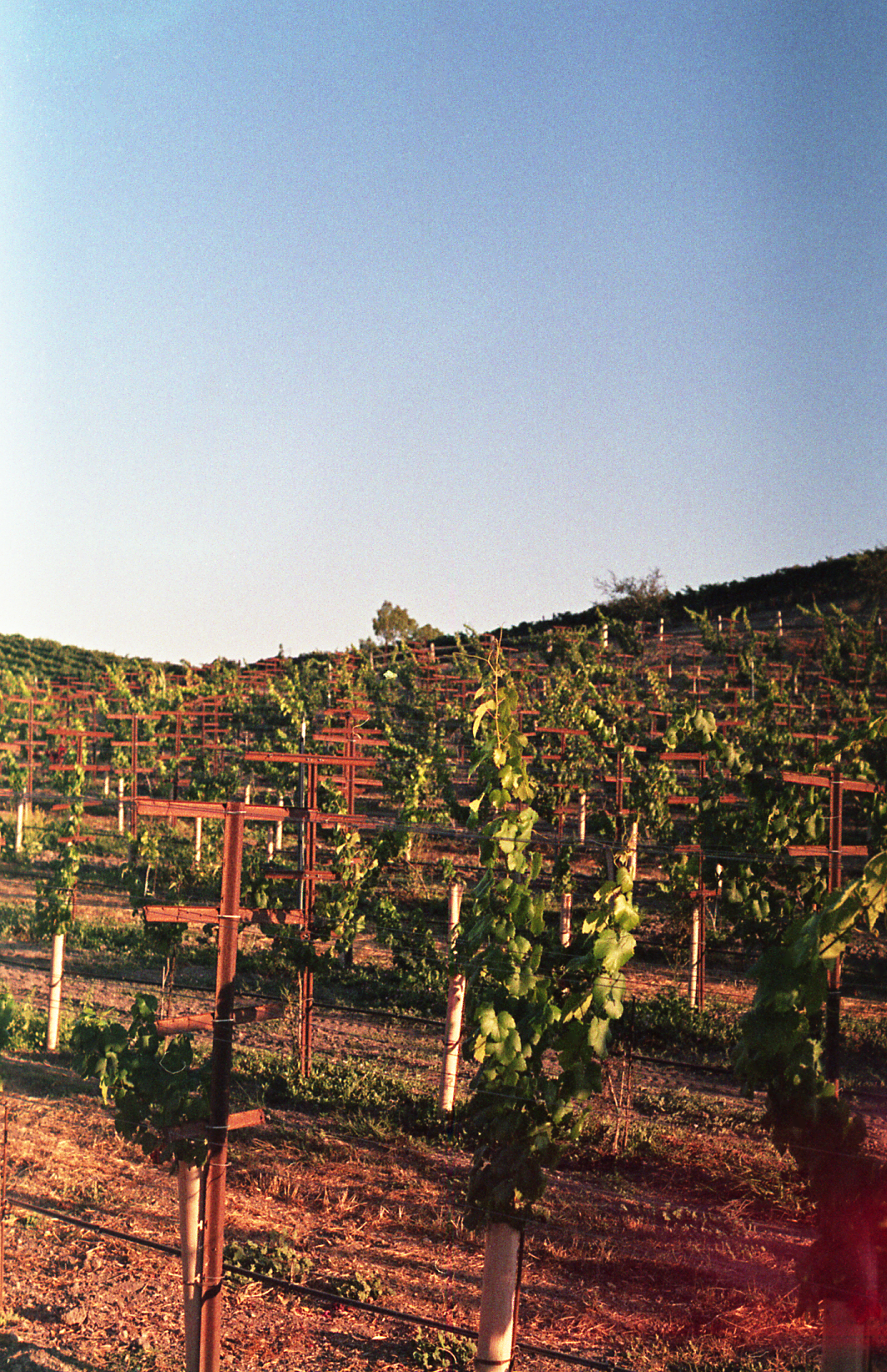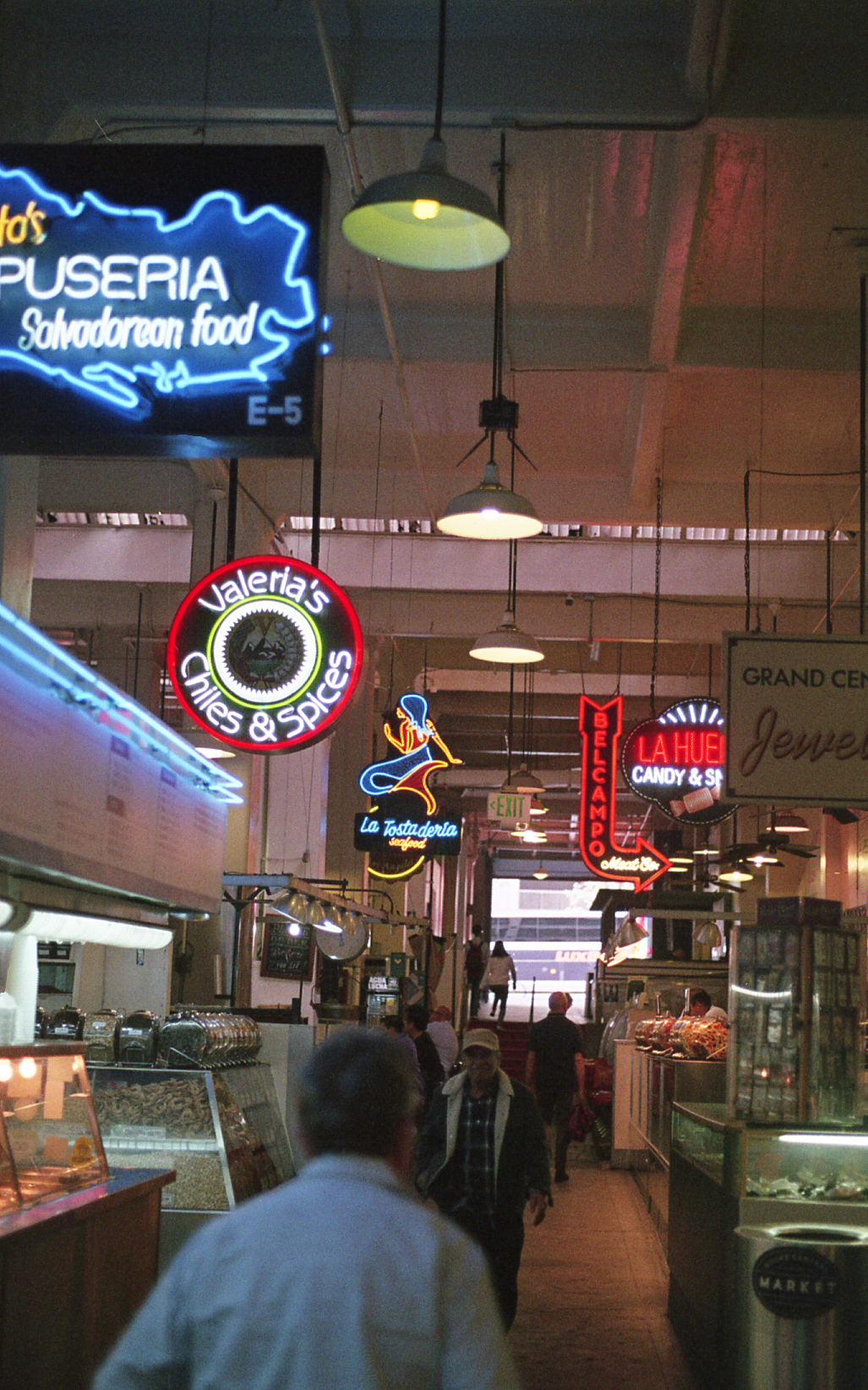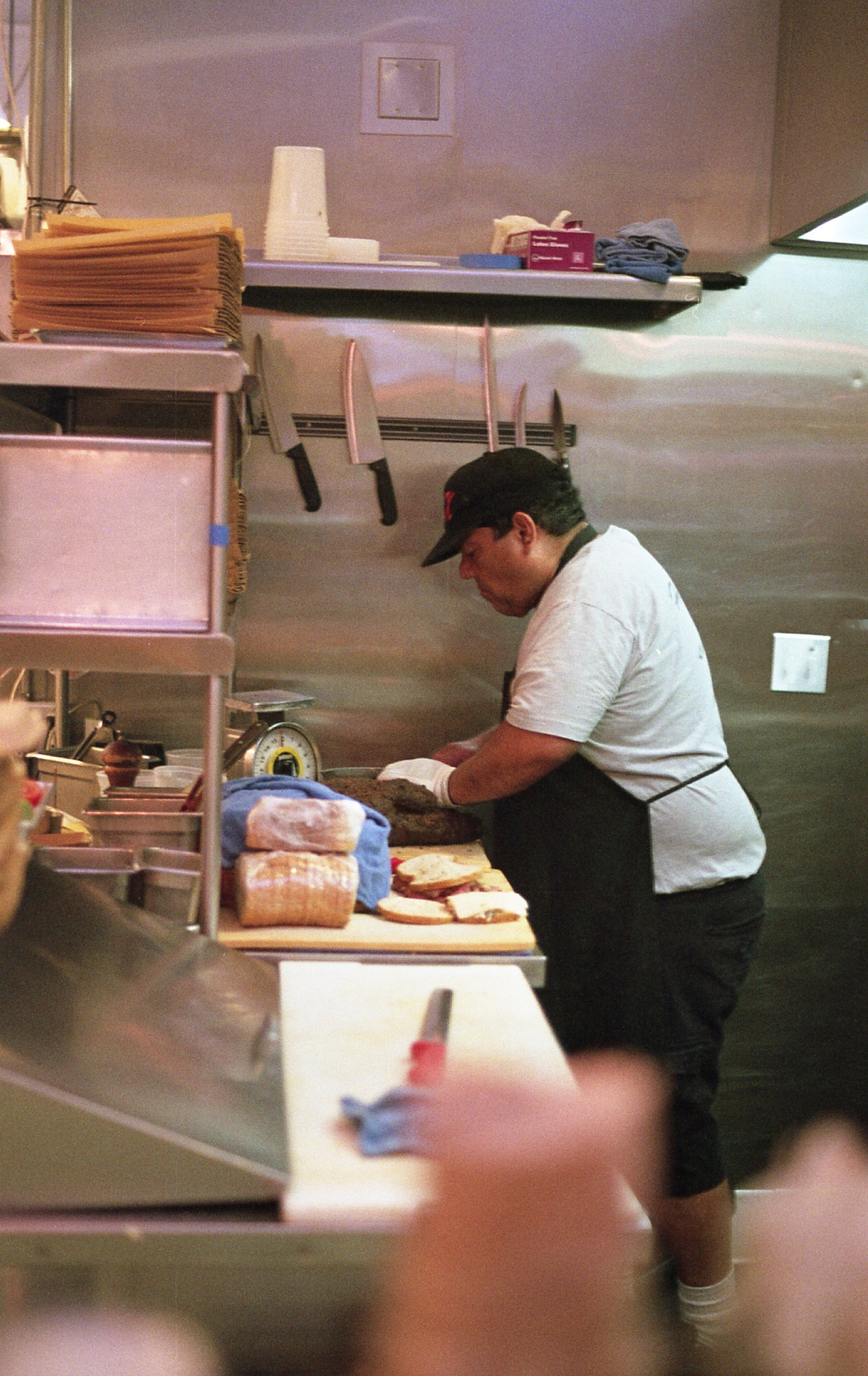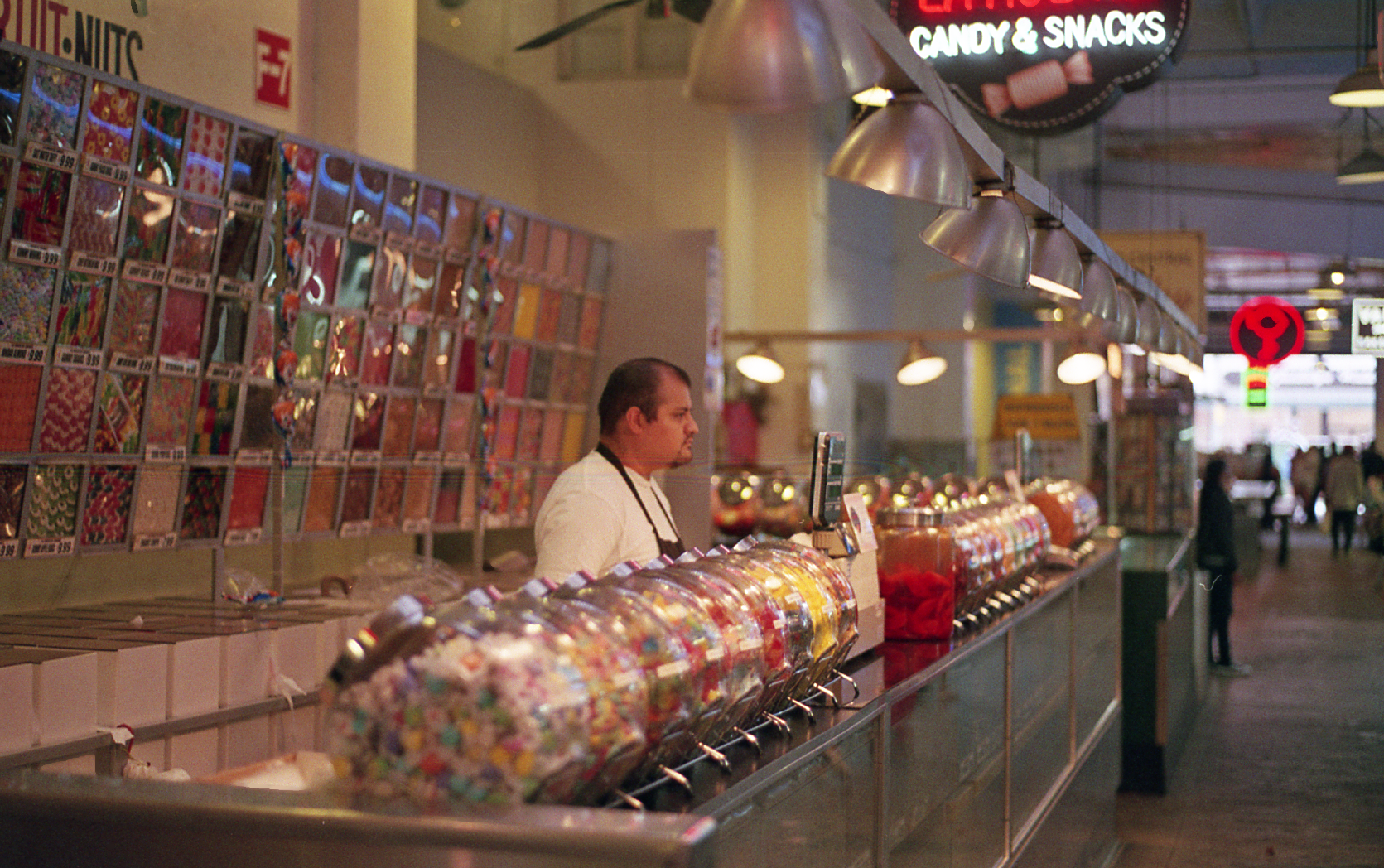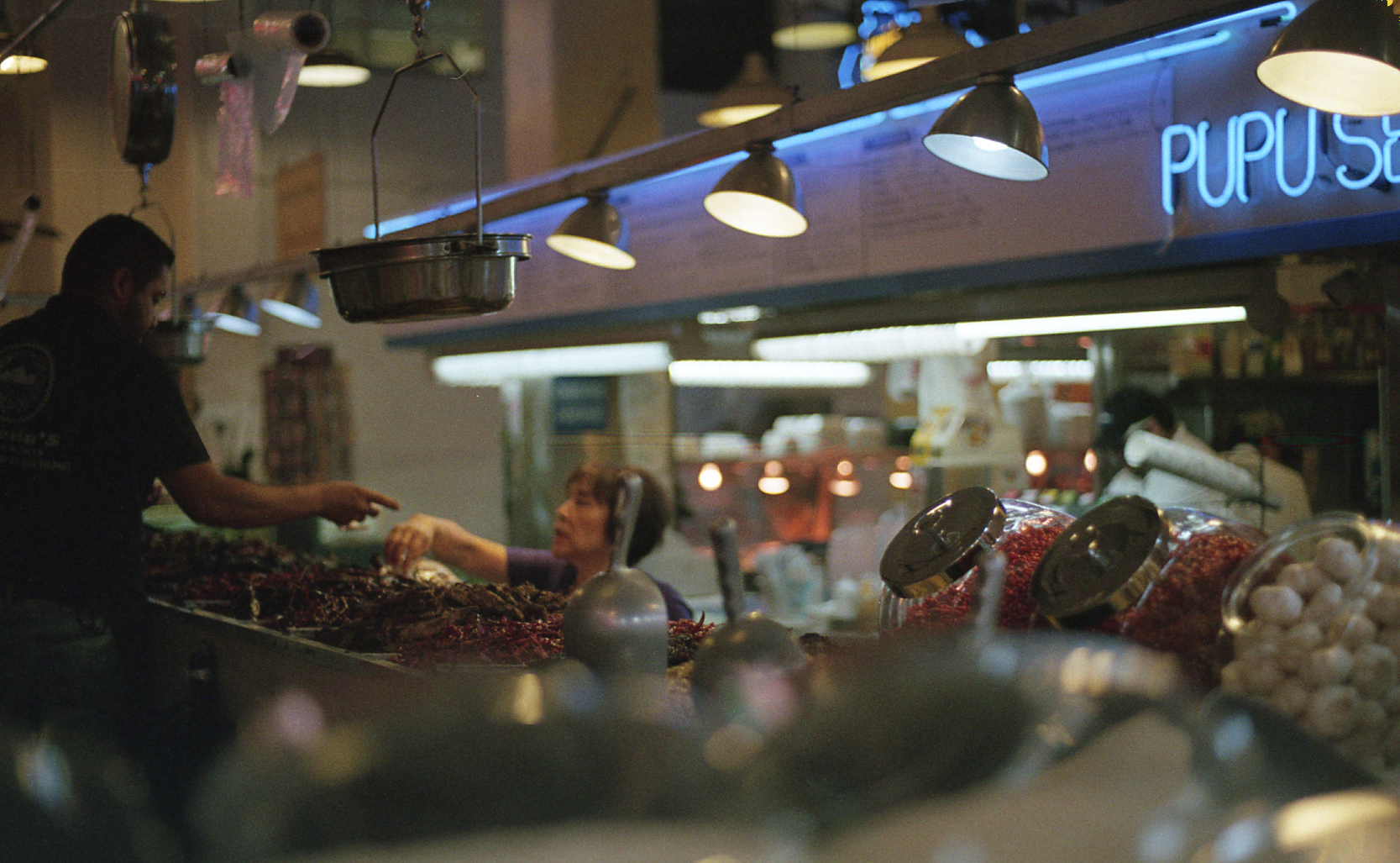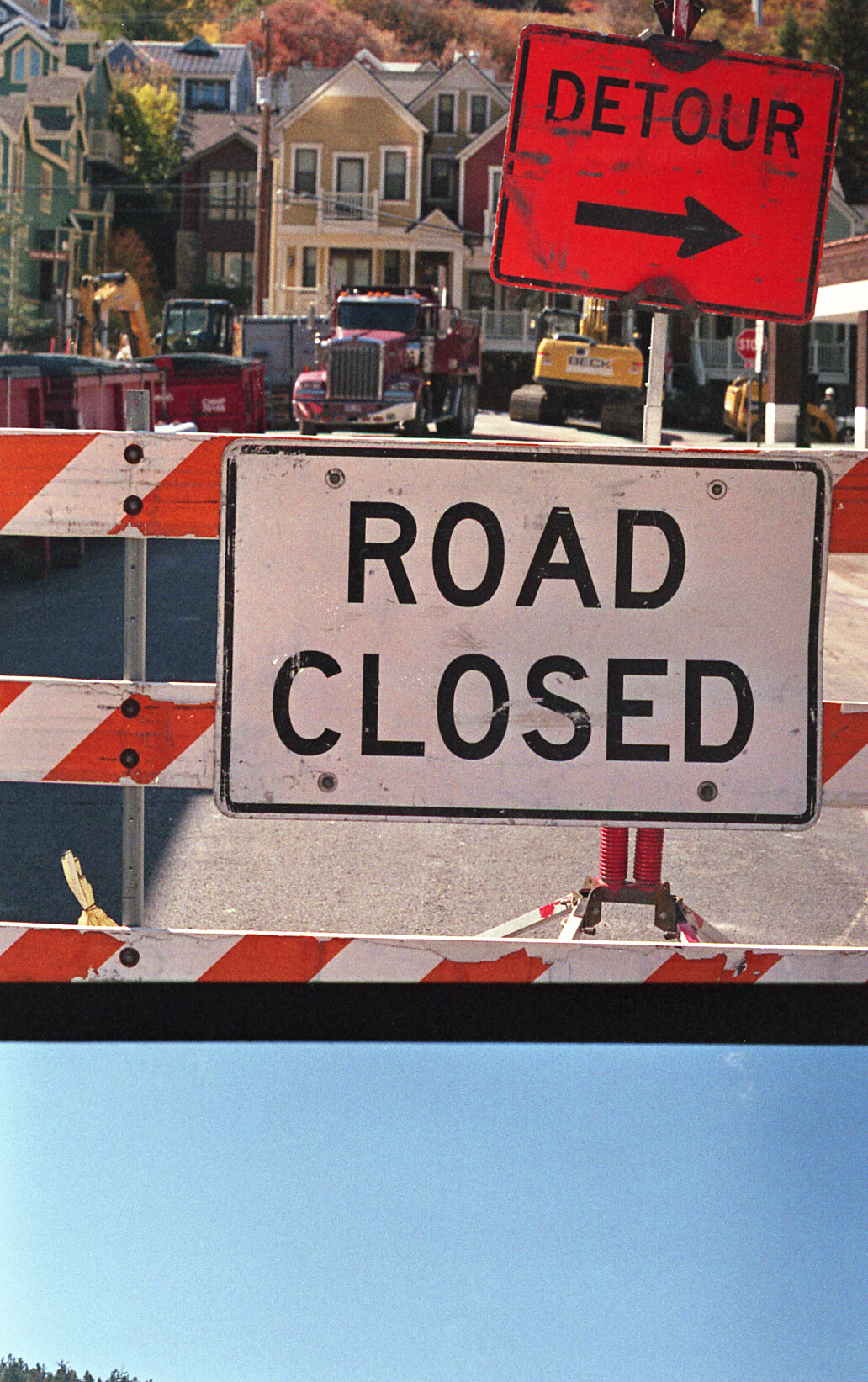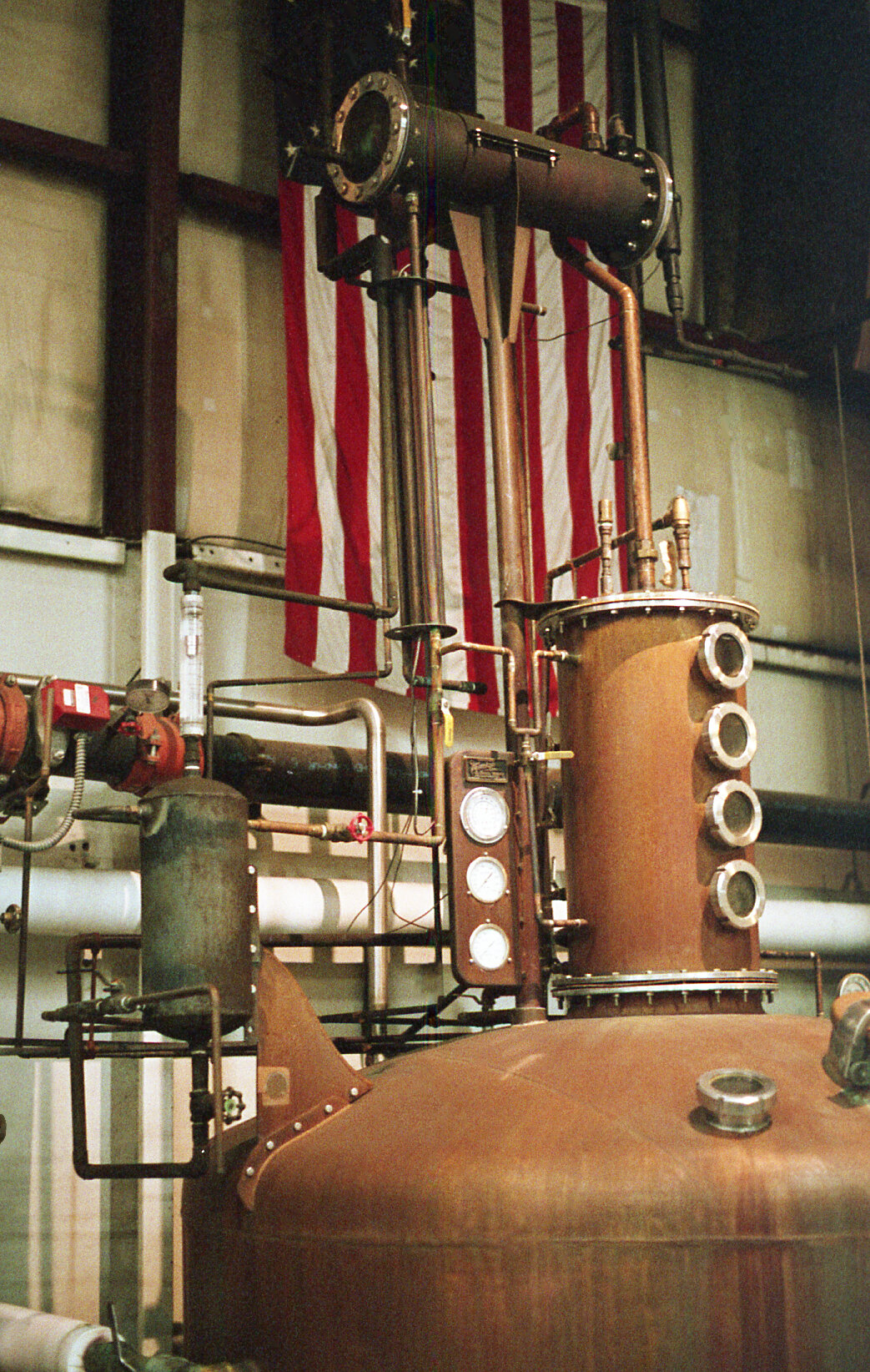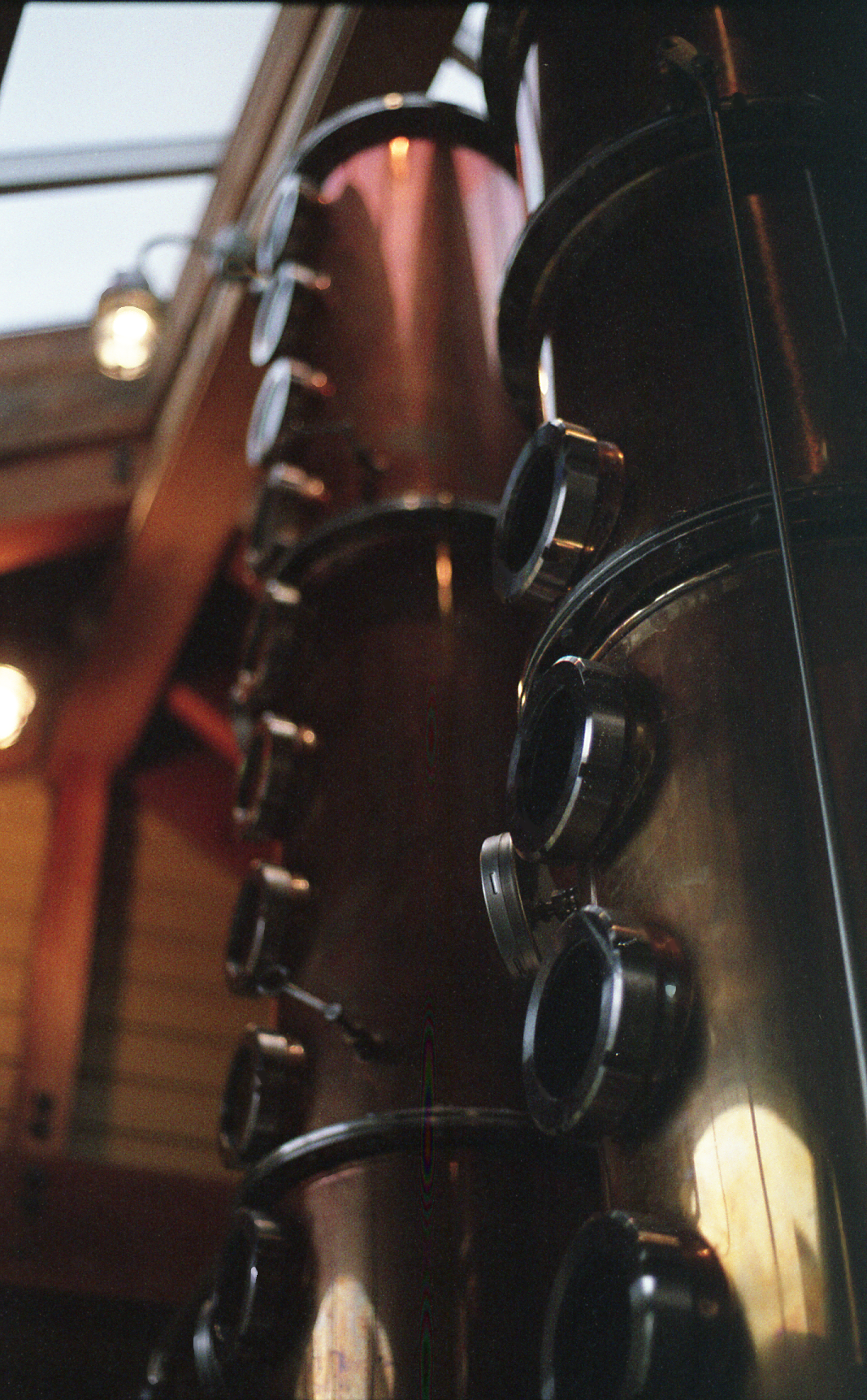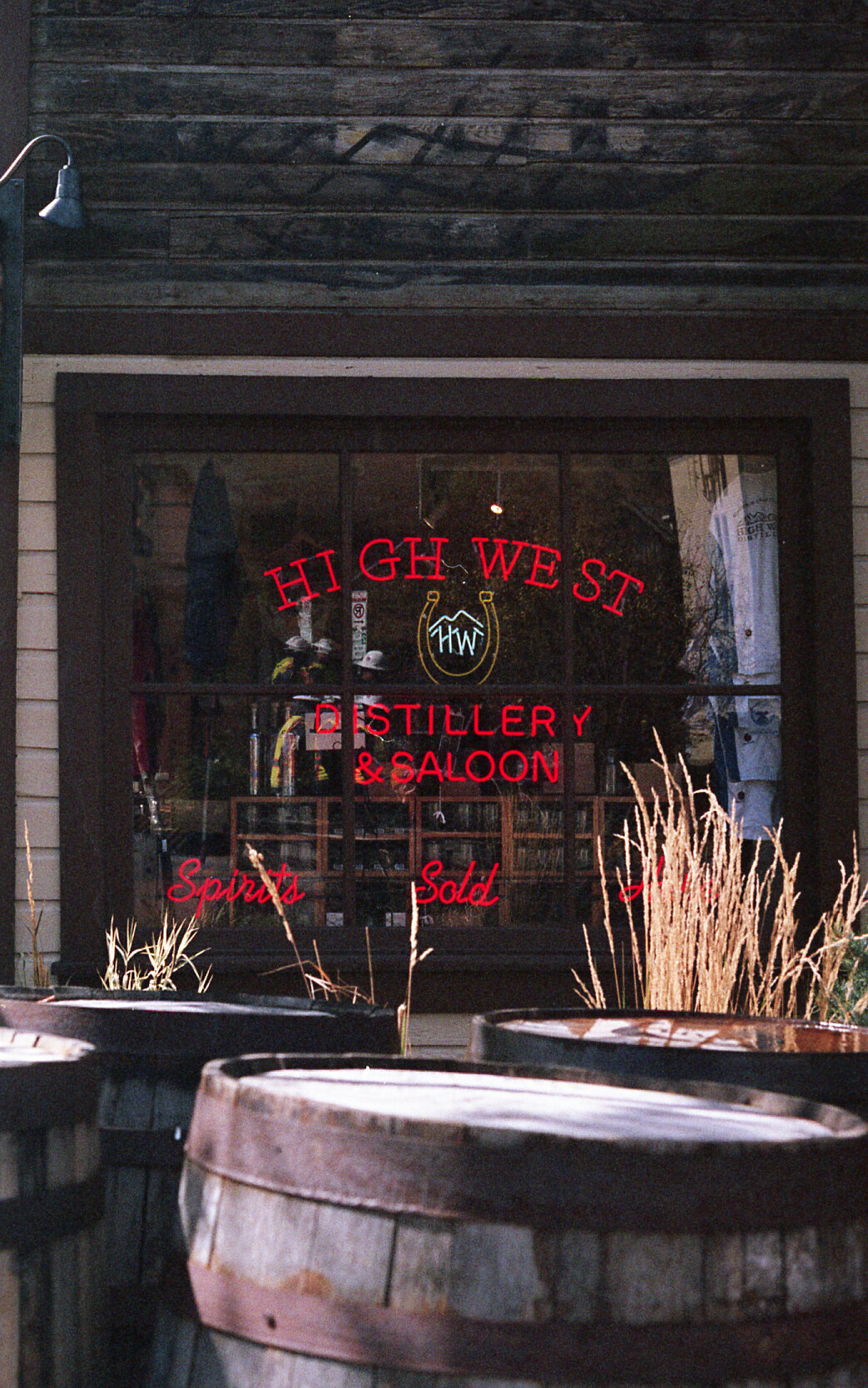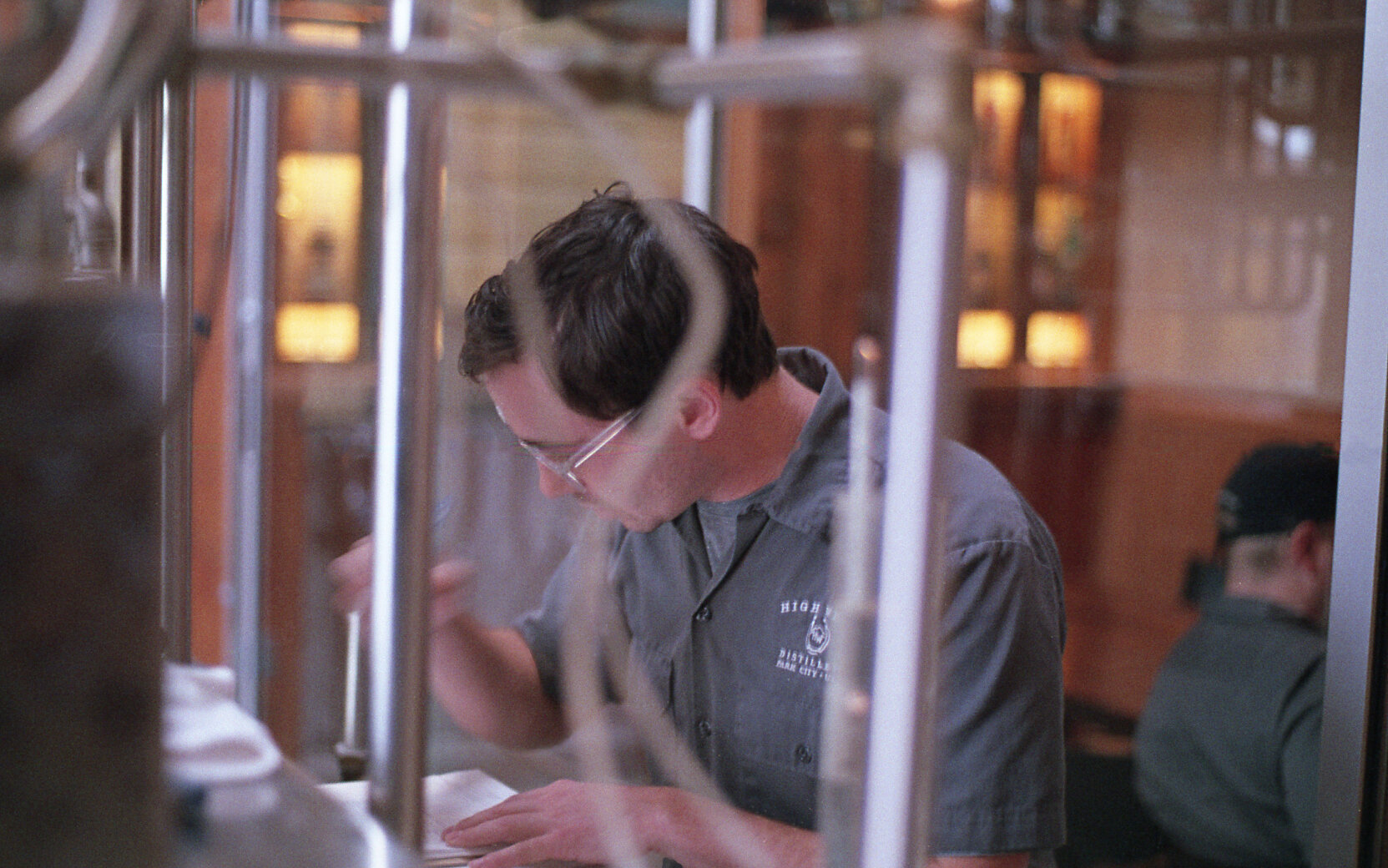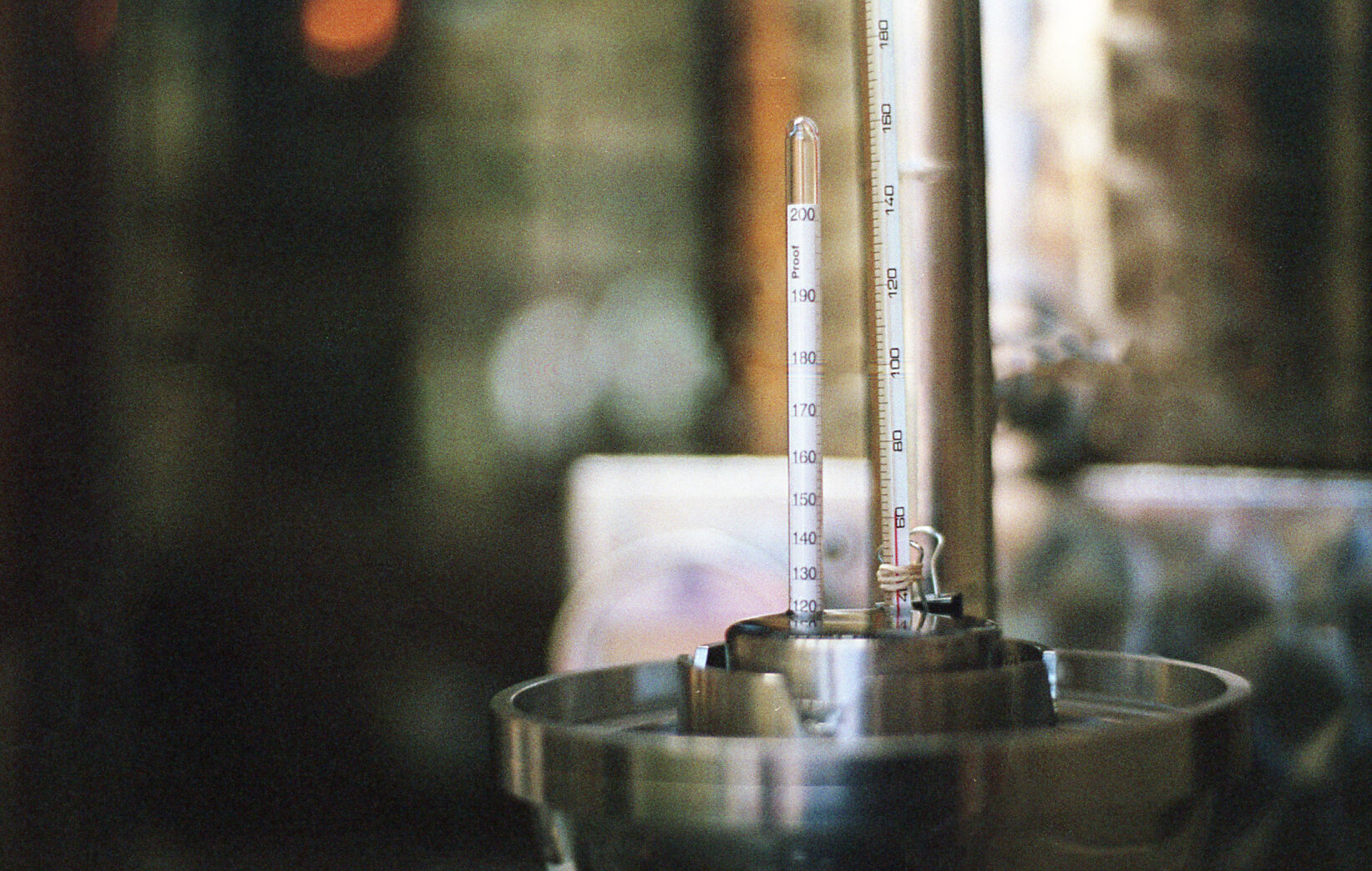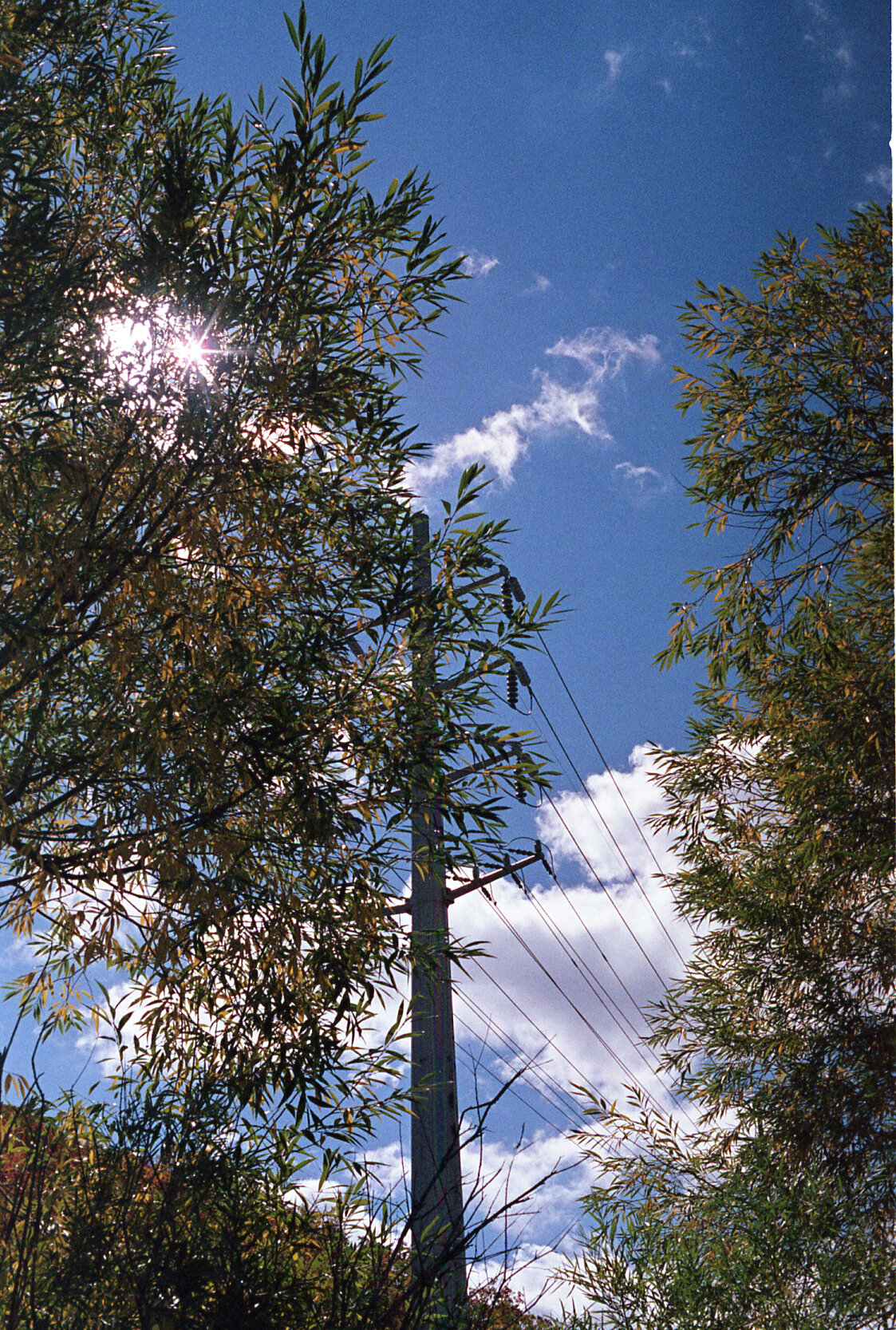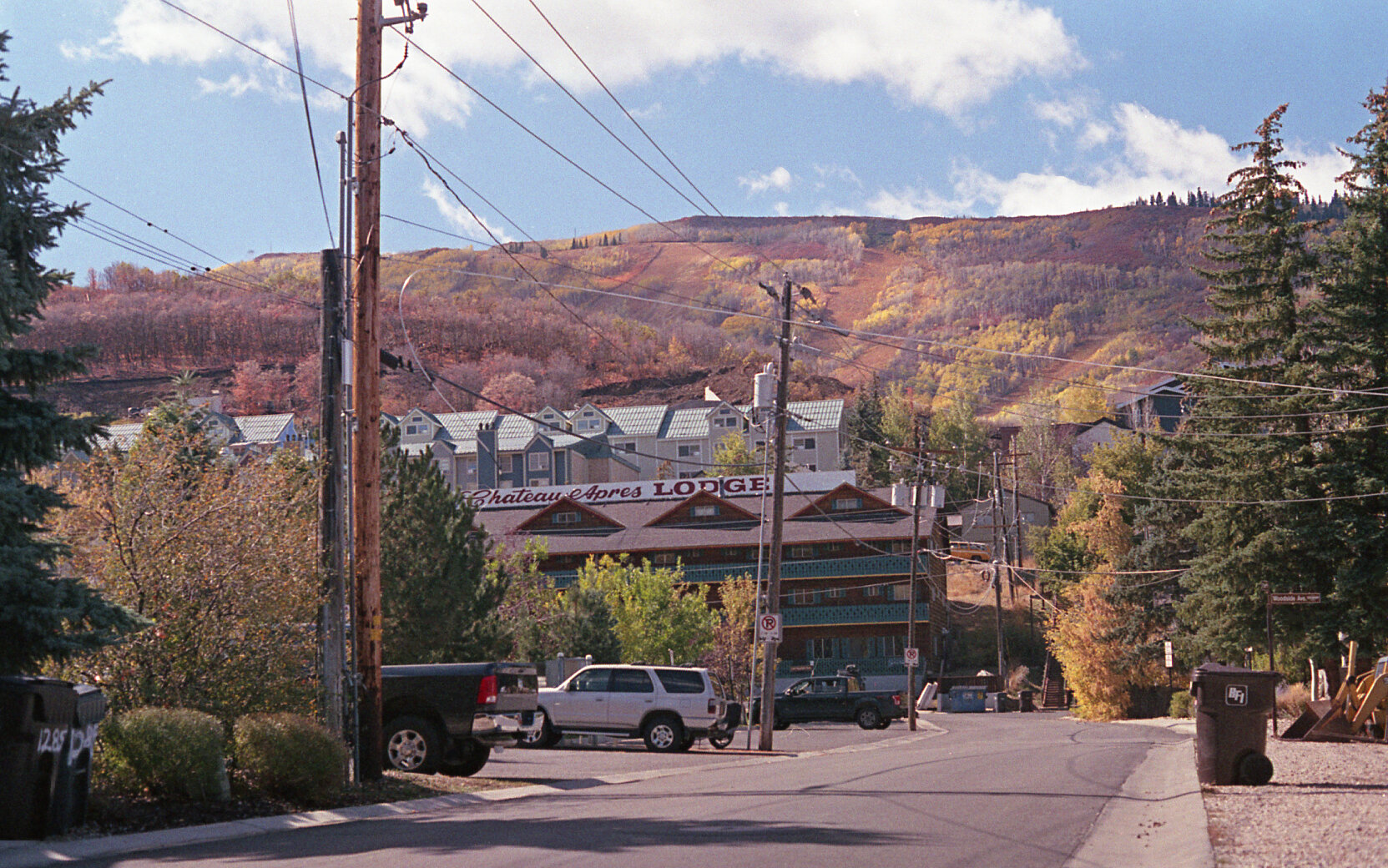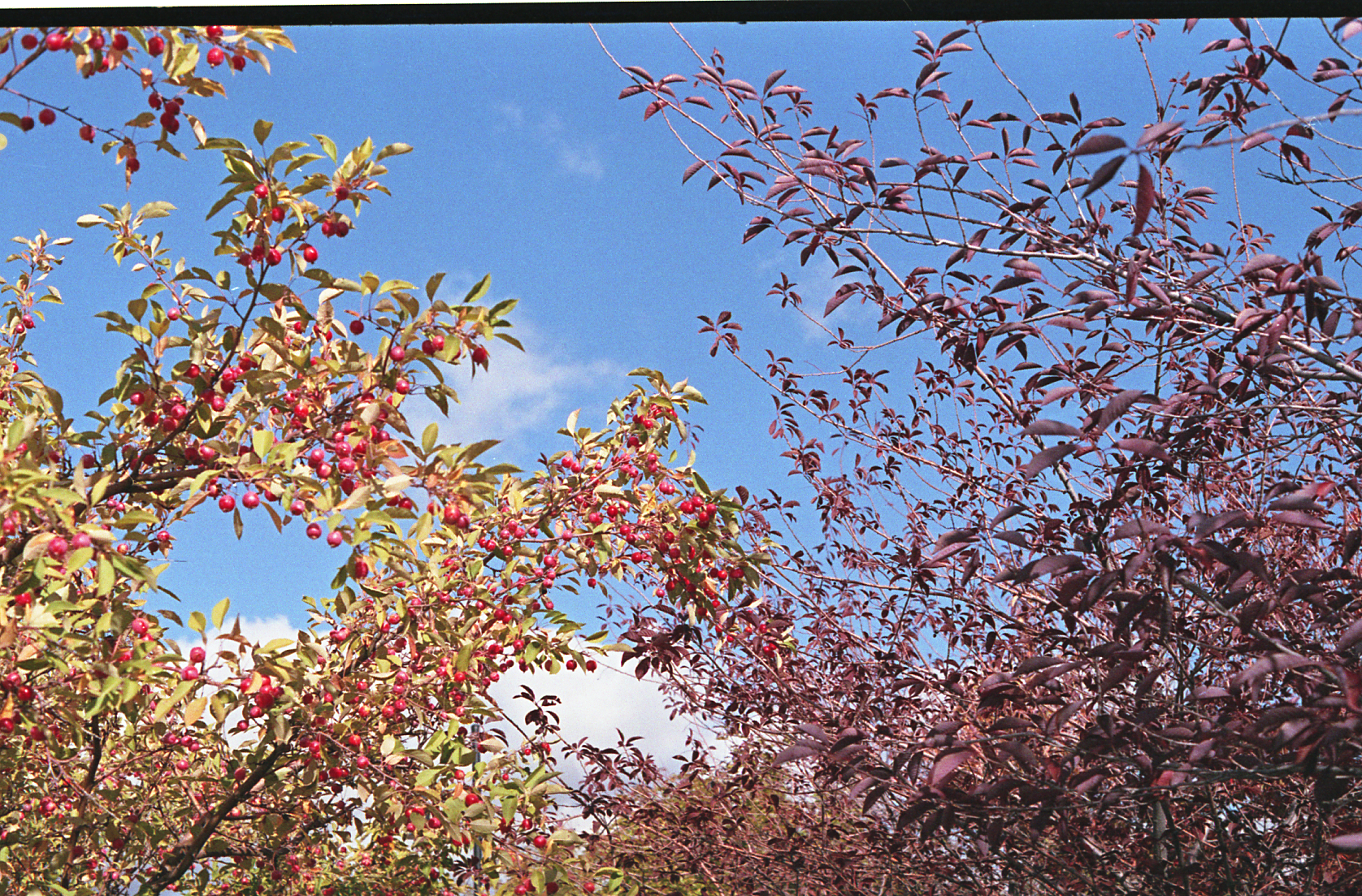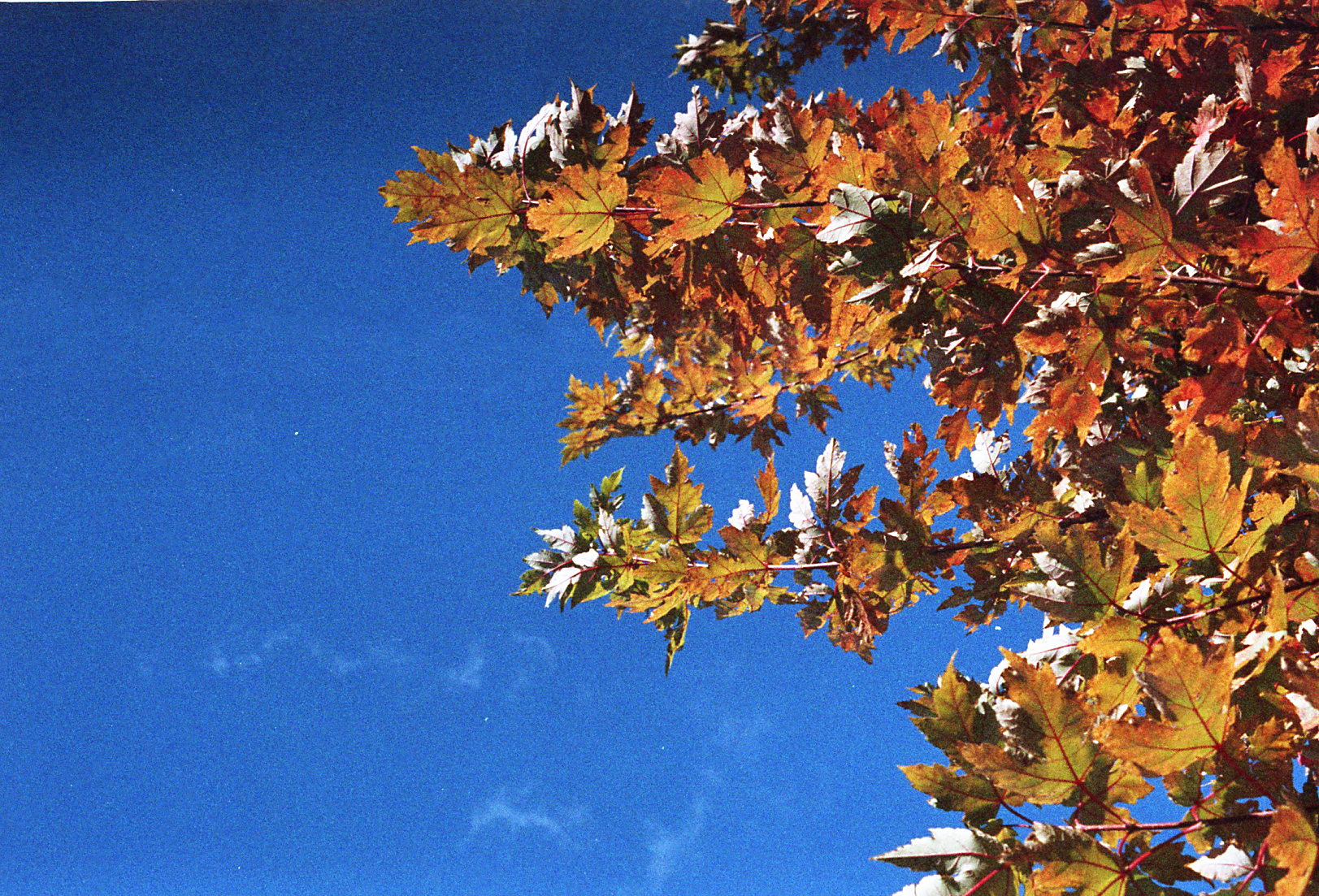Where You're Meant To Be
What possessed me, an introverted brewer with no publishing experience to start a publication? Isn’t the point of having your own magazine to force people to read your words? What if a worldwide pandemic came along and completely ruined your self-confidence, and you had to battle with this idea of being an imposter, fearing not only would people have no interest in reading these words, but worse, they would think less of you as a person for wearing your heart on your sleeve.
Jos Ruffell of Garage Project looking like the definition of cool at Mother Hubbard's Restaurant, Buellton, California. (All photography by Jonathan Hamilton).
As someone who has tried to be a voice of encouragement to newer contributors to this magazine, telling them that if I, an outsider, can be your editor, with no experience, then you are not an imposter. I don’t pay attention to much of the world of writing or journalism, but apparently, there is a thing called gatekeeping, and I don’t like the sound of that. In fact, it represents everything Pellicle stands against. Why is it then that I act as a gatekeeper to myself?
I’ve chosen to document this personal story with my own film photography taken on a trip to the US (California, Utah and Colorado) in September/October 2018 for two reasons. The first and most important reason is that Pellicle, the concept, was originally meant to be a short photography zine taken on this trip which I would self publish—something of a passion project I had dreamt of for years, based on my love of travel and film photography. Secondly, I’m incredibly self-conscious about folk reading my innermost thoughts, so at the very least you can enjoy some nice photos.
***
In the middle of 2018, I found myself in a bit of a rut. I had been working at Beavertown Brewery in London for two and a half years, had been promoted to running the Tempus Project—their mixed-fermentation and barrel-ageing project—and was getting to travel around Europe to show off these beers. It involved getting to work with some of my best friends—like Charlotte Freeston, who went on to run the project after I did, and now has moved to work for a brewery in Australia.
Two of the sweetest men in the beer scene. Jeremy Grinkey of The Bruery and Evan Price of Green Cheek, both in Anaheim, CA, sampling a collaboration of theirs from the foudre.
On paper things were great, but my personal life was far from it. I had moved into a new flat with people I didn’t know, who didn’t particularly seem to like me, and my long-term relationship with my partner was deteriorating. Perhaps I didn’t recognise it fully at the time, choosing to ignore the cracks and the signs, scared to lose more grip on what was happening around me.
It was a moment of big change for me, something I have always found it hard to adjust to. I was miserable at home, choosing to eat out or spend time in bed. I didn’t see it for what it was at the time, but the depression that had haunted me years earlier had begun to return. I was becoming insular and could feel myself once again becoming removed from people who cared about me. But, I loved my job, and the creative freedom it enabled. After years of telling people (and myself) my philosophy of brewing is “part science and part art,” I was finally able to experience the latter. After all if you love your work and can spend all your time there feeling fulfilled by the kind words you read about your beers, you can’t be depressed, right?
My parents might disagree, but I was a quiet, and probably—in hindsight—depressed teenager. I had convinced myself that the surroundings of rural Northern Ireland were not for me. The reasons for this are many, but recent experiences in therapy have allowed me to realise a lot of this was due to my uncle, who had travelled the world outside of the walls of our small country. This along with early exposure to the internet, music and magazines.
At the Pellicle launch party in May 2019, after a wonderfully thought out speech from Matt, I rambled for a bit about how my obsession with the Beano and the Dandy (both weekly comics published by DC Thomson in Dundee) ultimately led me to this moment—as unbelievable as it may sound. That, and a predisposition to throw myself at things I set my mind to.
By the time I got to high school—the one that my best friend wanted to go to, and didn’t get in, one which was more middle-class than where I perhaps was predestined to attend, one which by Northern Irish standards was considered liberal—I had moved on from comic books to music magazines such as the NME and Kerrang! Mostly thanks to a primary school teacher who rewarded finishing classwork with music, introducing me to bands like Green Day at the age of 10.
Being the youngest person in my year at high school already left me feeling out of place. I was surprised to learn the other kids in my class did not seem to know of, or care for, the pop-punk sounds of Green Day. Thankfully I can trace the rest of my life up until now through stacks of magazines in the attic, which at least proves I existed during this period of high school until I left Northern Ireland for Scotland aged 18. My earlier worries were quelled when I met a couple of others who got the music I liked, and we channelled that love of music into our first skateboards, and a new love affair began. Pocket money dictated priority, and music magazines were swapped for copies of Thrasher, Transworld and Sidewalk.
Soon magazines were replaced altogether as my two best friends, Patrick, Mark, and I discovered message boards. This is when I first realised that there was a world outside of school, outside of this small country where people knew each other intimately through their family name, and how they pronounced the letter “H”. I quickly went from feeling alone and weird to being excited about new music, films, art, travel, and photography.
Without these communities, I would not be who I am today. It taught me that the world is big, that people have much more in common than we have apart, and that I wanted to meet these people who I shared interests with in real life. I’m sure it was incredibly frustrating for my parents that I was despondent and quiet at home while I was feeling more and more a part of these communities outside of it.
By the time it came to leave for University in 2008 I had developed into a more comfortable version of myself, finding there a group of funny, passionate, brilliant young men who became my best friends and biggest supporters. From the moment I arrived and saw the gig listings section in a local record shop window I knew that I was going to love it here. I say it a lot, and as sincere as it might come across, my life began when I moved to Edinburgh. I felt that I finally had gained my independence, quickly finding myself going to gigs alone across the country, joining the student radio station and the photography society, meeting lots of new people, and making new friends along the way.
This period of my life is devoid of magazines. Perhaps it’s because I was finally living the life I had read about, I felt I no longer needed to read them. More likely it was because my life had become saturated with university work, and a newfound passion for photography. For the first time I had found myself a creative outlet outside of studying, and I gave it everything I had.
Until I hated it.
***
In 2011, I had my first chance to travel since moving to Edinburgh. A three-week trip from Montreal to Washington D.C. along the East Coast of the USA with Lauren (my partner at the time) before undertaking a year in pharmaceutical chemistry in Stevenage, near London. Lauren was about to undertake an exchange year at Georgetown University in the US capital, and so for both of us—and as someone fond of a bit of hyperbole—it’s hard to describe this trip as anything other than revelationary. I had been to the States before with family, and I’d been to Europe with friends, but nothing could have prepared me for how that trip sculpted my life and my career.
This cat is called Oliver, and belongs to my pal, and fellow Herriot-Watt alumni Owen Martin, head distiller at Stranahan's distillery in Denver, CO
From the moment we arrived in Montreal and ate our first meal I felt that things were changing for me. Up until this point, my understanding of food was that it was something that had to be cooked in order to give us the energy needed to go about our daily tasks. Food was fuel, and that food was flapjacks to get through the three-hour chemistry lectures, mashed potatoes for dinner to finish the mountains of assignments I had to complete, and occasionally, epic meals from Lauren, who could actually cook. Sure there were times when I would try to impress with my wrapping of a chicken breast in some parma ham inspired by the pre-packaged versions in the supermarket.
In North America, with this new adventure ahead of us and some headspace regained, together we learned to appreciate what food could be, discovering many local places to eat amazing food, from crab shacks to diners and everything in between. From Canada, we crossed the border into Montpellier in Vermont and the first beer we were offered was from “a new local brewery up the road” called Hill Farmstead. I had no idea what this meant, but by Maine, we were visiting another local brewery called Allagash, and by D.C. I was hunting down bottles of Jack D’Or from Pretty Things, and tallboys of Alchemist Heady Topper.
Back in the UK, within a few months of my internship at Big Pharma I had decided it was not for me. There were ethical reasons behind that decision, but mainly the idea of working on something for years—maybe close to a decade like some of my colleagues and mentors at that job—and to have it come so close to fruition then fall at the final hurdle of clinical trial really didn’t do it for me. I realised that my impatient brain craved a much more immediate conclusion to my work, something which couldn’t be found in a pharmaceutical lab.
““As sincere as it might come across, my life began when I moved to Edinburgh.””
Once again the internet became my closest friend. The skateboarding and music forums from my teenage years were swapped for homebrewing and beer blogs. It’s funny to think back that those blogs which inspired me to change career included Matt’s own Total Ales, and Pints and Panels by Em Sauter—now my business partner and our regular contributor respectively. I discovered homebrewing again—having previously made one “kit brew” in 2009—and that there was a Masters course in Brewing and Distilling back in Edinburgh at Heriot-Watt University. And so began the back and forth between London and Edinburgh over the next 8 years.
My remaining time in England was to be spent cycling around London, brewing as much as I could manage, and dreaming of one day doing it professionally. This was 2011/2, and the beer scene looked a lot different back then. My Saturday ventures into the city would take me to Bermondsey to stock up on bottles from The Kernel, and whatever was available from the Oddbins at London Bridge, and finally to Kris Wines in North London where I would acquire the latest US and Belgian imports.
I returned again to Edinburgh to finish the Chemistry degree I no longer loved, before starting my next degree in Brewing and Distilling after the summer. To look back on it now there is something incredibly powerful comparing how I felt at the end of that first degree and starting the second, and knowing I had made the right decision.
I remember when my final chemistry results came in, meeting for a beer, being surrounded by my peers—all whom had received first-class honours—and feeling such embarrassment and frustration at all the hours I had put into that year. It felt pointless and futile. Flash forward to my first week at Heriot-Watt, in a lecture on malting and mashing, with a new room full of people from all around the world, all here to learn the same thing, and to hopefully bring them to their goal of becoming a brewer or distiller. For the first time, I felt like I knew what I was talking about, and people understood that and respected that. I was where I was meant to be.
I felt confident in my knowledge and quickly realised that most of the last 10 years of my education were simply memorising things I didn’t truly understand in order to be validated by a number or a letter on an exam paper.
The tasting bar at High West Distillery in Park City, Utah where my old Heriot-Watt pal Isaac Winter is Lead Distiller.
Now aged 24, I was sitting in a room full of like-minded people from around the world with a huge range of backgrounds including art history, language, business, and a few like me who came from a more traditional science background. Some of them had even worked in breweries prior to the course. And those people, like my close friend Isaac Winter—now Lead Distiller at High West Distillery in his home state of Utah (pictured above)—were our mentors, and we looked up to them with respect.
I graduated from that degree in the Autumn of 2015 and started my first job in the industry at the same time as the house brewer of a small brewpub in Edinburgh called the Hanging Bat. It turned out a background in homebrewing, and a degree cannot prepare you for actual brewing and it was a bit of a learning curve, setting off the fire alarm on my first brew and having to evacuate the pub at lunchtime. Eventually, I began to find my stride, and in October that year, I poured my beers at a major beer festival—IMBC in Manchester—for the first time. [Editor’s note: they were delicious—especially the grodziskie.]
Over the next 15 months or so, we—myself and my best friend Joe Dick, who was managing the bar side of things at the Hanging Bat, and later joined by Robin Head-Fourman who took over brewing duties from me—would go on to brew some amazing collaborations with big-name brewers, and return to Manchester the following year to pour beer. Sadly, a lot can happen in a year, and between those two festivals, I had once again become deeply depressed. I was stressed and worried, putting pressure on myself to be a perfect version of the brewer I thought I could be.
I had spells on antidepressants, and my first experience of counselling, but mainly I would go home and watch Twin Peaks on the TV by myself, with Lauren in the next room, trying to figure out ways to be supportive. I lost interest in skateboarding, photography, even music. I had lost sight of myself and what I wanted, feeling under-confident in everything I produced.
The Bluebird Theatre, Denver, CO. Taken on one of my solo nights zooming around town on an electric scooter after visiting one of the city’s many fine dispensaries.
By the time we left Manchester that second year I had reached such a low that I broke down in our hotel, treating Lauren and our friends very poorly in the process, something I still feel great shame for. What was clear on the drive back to Edinburgh was that a pattern was emerging where I was keen to once again throw myself at my hobbies, willing them to be at the centre of life, and wanting to be the best I could possibly be, but always falling short of my own high standards. Anything less than that sent me into a spiral of self-loathing. The independent, fun-loving me had been replaced by fear of failure, imposter syndrome, and depression.
In early 2016 I quit my job in Edinburgh and we made the big move to London. Despite a hard final year in Edinburgh we had both managed to land our dream jobs, Lauren with the V&A Museum, and me at Beavertown thanks to a fortuitous meeting with fellow Heriot-Watt alumni Cosmo Sutherland.
My good friend Andrew Schwartz of Modern Times Brewery in his home in San Diego, CA, fetching me a can of lager.
On the second night of my stay with Andrew, he presented me with two options for the night’s activities: Rock climbing or Tijuana. I chose the latter. We went to this speakeasy cocktail bar where we did some drawing and then had a nice meal. Turns out TJ really is a party city.
Starting from scratch at a large-ish brewery (at the time) like Beavertown, learning on the job was incredible. We were a small team back then, and a young one at that. To think of how well-known that brewery would become and how it was being run back then by a bunch of 20-somethings who would party as hard as we worked is both incredible and heartwarming. I learned the importance of family and community again.
Sadly, like all good parties, it eventually had to end. We had a good run at it, we had some of the best times of our young lives, and made lifelong connections. In June 2018, after months of rumours, Beavertown sold a 49% stake in the business to Heineken. Some collegues left on the spot, others took a little longer, but within a couple of months, the family I had learned to love looked very different. This isn’t really about Beavertown, or the deal, or money, it’s about how a single moment changed everything once again. I was upset, but more than that I was angry.
““I wanted to make something personal to me, about my relationship with food and drink and the part it played in changing my life.””
By September, I was lost. With our relationship coming to its conclusion Lauren was moving back to Scotland, and I had finally planned to move out of the flat which was bringing me such misery. I convinced myself that a three week trip around the USA would be just what the doctor ordered. I mean, heck, these trips had been life-affirming in the past, so why not have another?
The night before flying to California I found myself at a bar called Five Miles in Tottenham, a five-minute stroll from the brewery. I bumped into Matt, who was enjoying a beer with our mutual friend Phill Elliot, co-owner of bottle shop Caps and Taps. I don’t know if I was drunk, or simply intoxicated by the idea of a proper break for the first time in a long time, but armed with a bag full of magazines for my journey—including Noble Rot, Pipette, Vague and others—I jokingly harassed Matt, asking why nobody was doing magazines like this for beer. Frustrated by the changes in my job and feeling creatively stifled after a good few years of doing whatever-the-fuck-I-wanted, I told him if he’s not going to do something about it, I’ll make my own god-damn magazine.
I told him I had packed my camera and ten rolls of film for the flight the next day, and I had plans to visit all these different breweries. I said that I was going to do a photography zine, and it was going to be called Pellicle, that being the closest thing (for me) to the concept of what Noble Rot is to wine, but for beer. The idea of creating something beautiful from the ugly, that without this layer on the surface of wild beer, some wines, ciders, sherry, Vin Jaune, kombucha (albeit all with their own names for this surface layer—flor, the veil, SCOBY) we wouldn't be here talking about them. I’m not sure how much of this happened at the time, how spontaneous an idea it was, or how serious Matt thought I was. [Editors note: I went home drunk and bought our URL.]
For the record, I was definitely joking about starting a publication. I did plan to make a zine, in fact I had layouts ready, but I was thinking that it would be a few copies for friends that I would hand out for free. I just wanted a creative outlet for my pent-up frustration. I wanted to make something personal to me, about my relationship with food and drink and the part it played in changing my life. It was about creating something for its own sake.
I returned from the States as confused as when I left. It had not been revelationary like previous trips, although I did have a nice time. I learned a lot about being alone, about making connections with strangers and how I can disguise my depression by hiding behind a lens of incredible food and drink.
Although the trip hadn’t given me a new-found sense of meaning in the world, I had returned to a new flat which I liked and, more importantly, a message from Matt saying he wanted to make Pellicle a thing. I remember sitting at my desk in my new bedroom looking out over Walthamstow and the rest of London beyond and thinking how do I tell him that I was only joking, that I don’t know the first thing about making a magazine, that I only know how to read them (and also, back off, it’s my idea!)
Knocking out a lager at Crooked Stave in Denver, CO. We brewed a Helles style lager which due to the altitude boiled at 94 degrees Celsius before we hopped it in their coolship. A proud moment as founder Chad Yakobsen’s work on Brettanomyces while he was a student at Heriot Watt a few years before me was a huge inspiration as to why I took that course.
A few weeks later, I found myself in Noble Rot’s Bloomsbury restaurant, attending the first business meeting of my life. Matt had prepared an actual business plan, with numbers, and ideas and a schedule. He’d even secured some funds to make it a reality. He’d even put the whole document in a nice binder. The man meant business. Over the next few hours we ate oysters and drank champagne, perused the wine list and drank some delicious Morgon. I left the meeting content but I wasn’t sure how we were going to pull it off. And so back I went to my room, and set about planning what I thought Pellicle should be.
To cut a long story short, by the start of 2019 we had registered the website, had the first few articles in the bag, and held a launch party. It’s been 20 months since we started this thing, and I still don’t believe we did it. I still feel like an imposter every day, with my mental health peaking and troughing as much as it always does. But, for the first time since starting this magazine, I’ve sat down and written something—the only thing I intended Pellicle to ever actually be. Or to quote from Nick Hornby’s High Fidelity: “You’re making something. You—the critic, the professional appreciator—put something new into the world.”
To everyone who has read our magazine since day one, you have no idea how much it means to me, and to Matt. To my friends I’ve met along the way, thank you for supporting me through this process. I thought 2020 would break us, and yet here we are coming into 2021 with more support than ever before, with new voices, and a clearer idea of what this publication is meant to be. The earth is not a cold dead place. Because you are breathing. Because you are listening. Fifteen-year-old me would approve of me writing that.
With thanks to our sponsor Hop Burns & Black, and our incredible Patreon supporters—without whom the upkeep of this site would not be possible.



